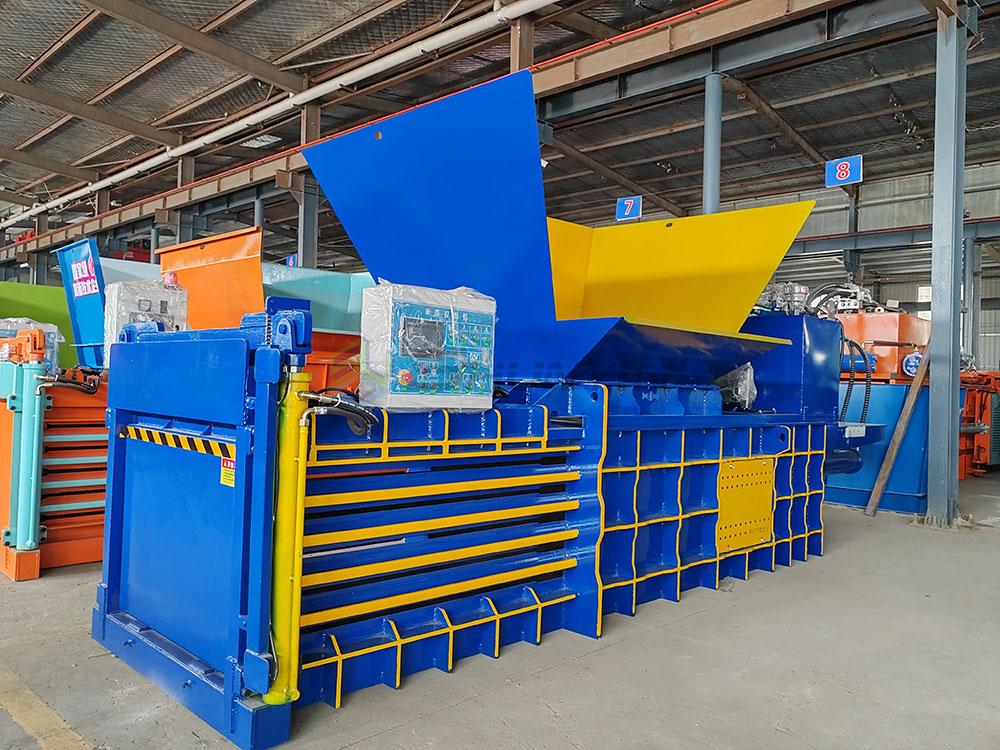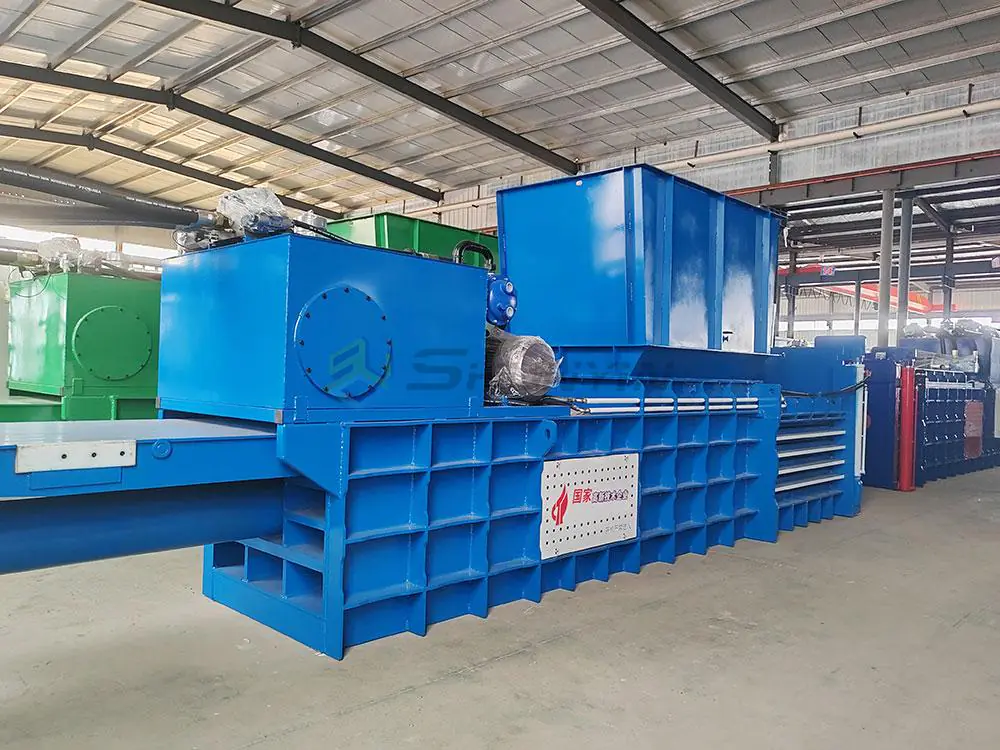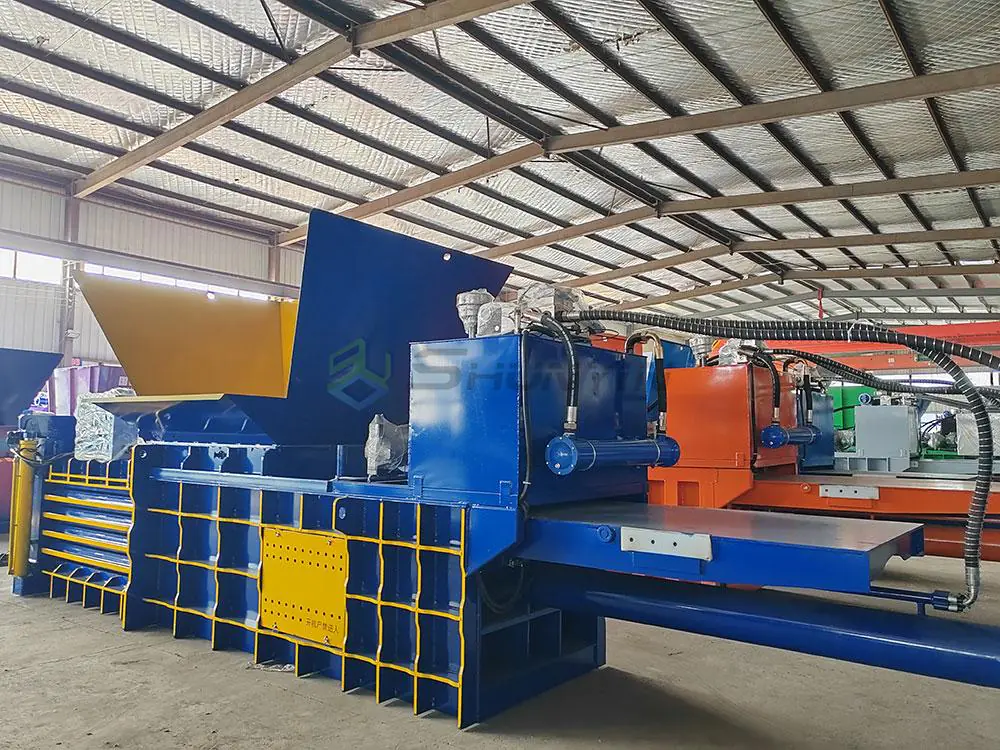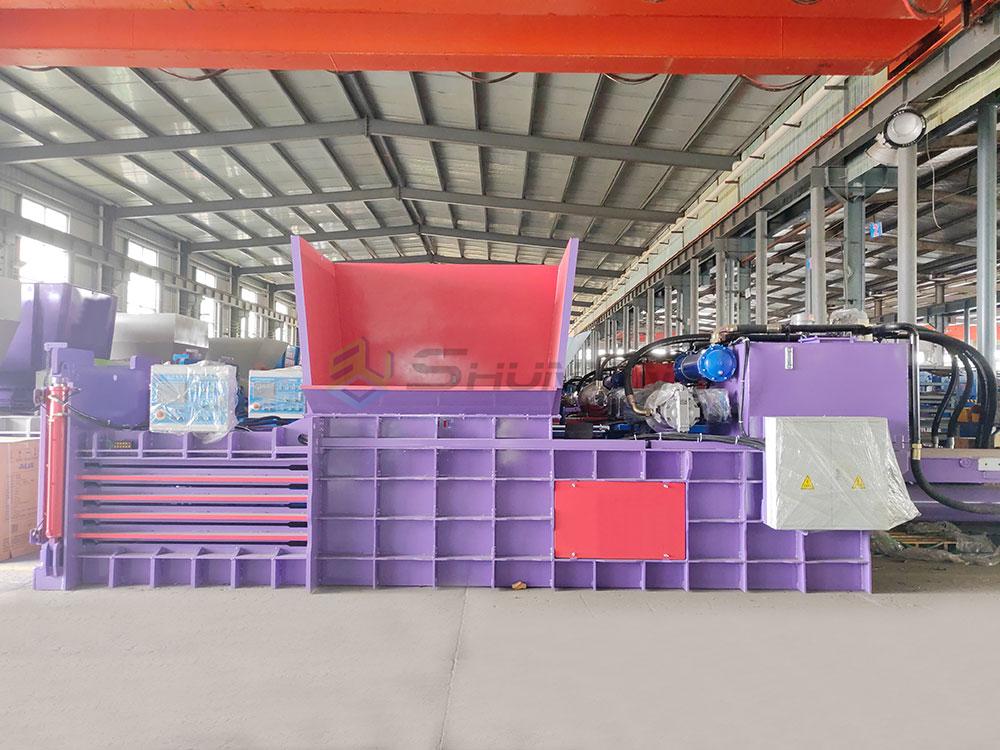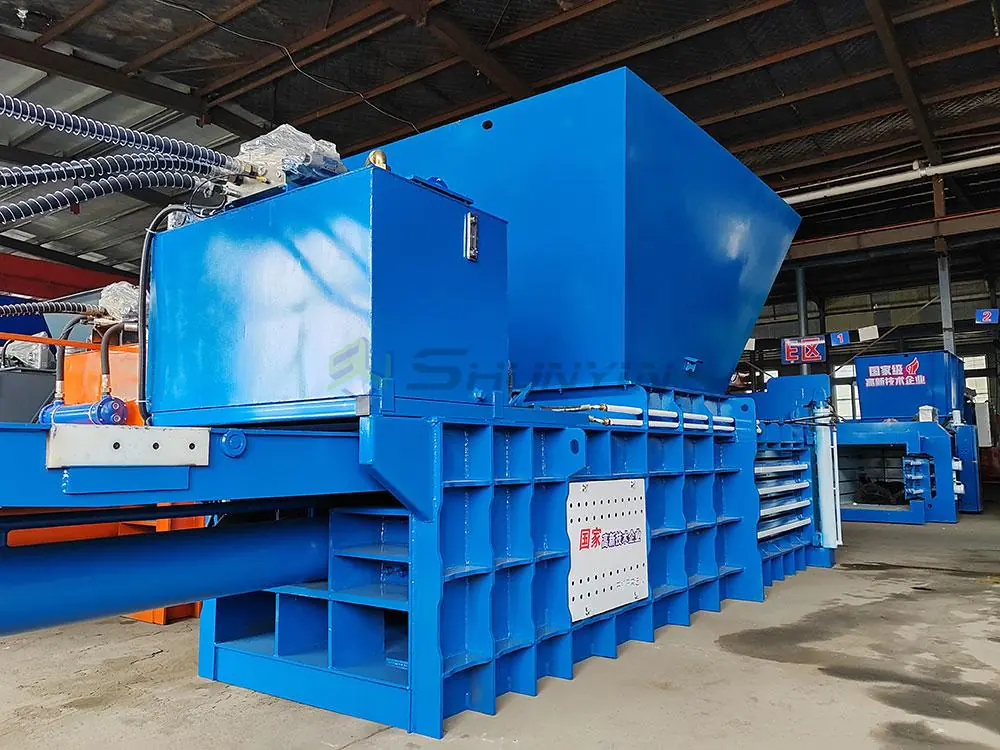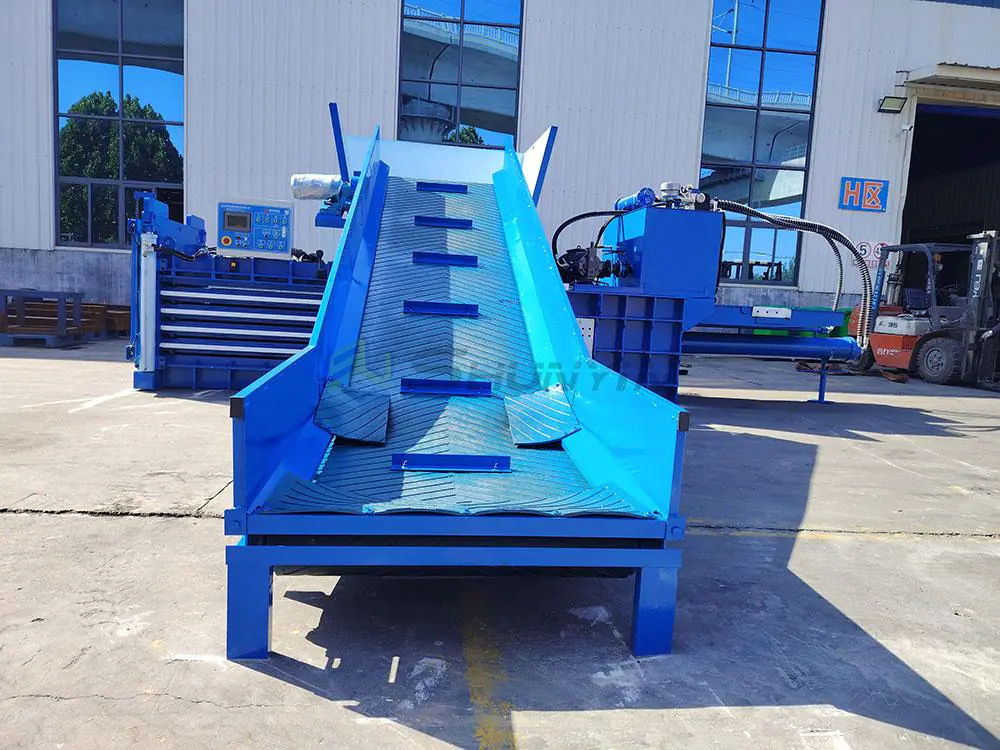Waste piling up daily? Transportation costs draining profits? These struggles hurt businesses daily. Let’s fix them together.
Horizontal hydraulic balers reduce manpower needs by automating compression/strapping, while dense bales shrink storage needs 70%. For recyclers handling 5+ tons daily, ROI often comes in 8-14 months through combined labor/space savings.

Still hesitating about adopting balers? Keep reading to discover hidden savings that transform waste liabilities into assets.
How does a hydraulic baler work?
Seeing employees wrestle loose scraps? Understanding baler mechanics solves manpower headaches. Picture industrial-scale compression.
Hydraulic systems generate massive force (up to 120 tons) pressing waste against chamber walls. After compression, auto-tiers bind dense bales. Key phases: feeding → compaction → strapping → ejection. Different models handle unique waste profiles.
Modern configurations maximize versatility across waste streams. Explore critical operational nuances:
Pressure Control Customization
Waste density varies wildly. Paper requires different force than plastic film. Smart balers solve this:
- Variable pressure settings: Adjust force (20-120 tons) per material type
- Density sensors: Auto-stop compression when optimal density hits
- Bale weight control: Produce uniform 300-800kg blocks
| Here’s why precise pressure matters: | Material Type | Ideal Pressure | Achievable Density | Bale Weight |
|---|---|---|---|---|
| Corrugated Cardboard | 40-60 tons | 680kg/m³ | 550kg | |
| Plastic Film | 25-35 tons | 430kg/m³ | 220kg | |
| Textile Waste | 70-90 tons | 820kg/m³ | 650kg |
One mistake hurts efficiency: over-compressing PET bottles reduces resale value 30% by damaging plastic flakes. At ShunYin, our engineers video-verify your waste profile before shipment. Get a free compression test: WhatsApp us direct.
What is a baler in waste management?
Facing frequent waste-collection fees? Storage limitations halting production? Balers are game-changing volume reducers.
It compresses waste into compact, stackable blocks—slashing storage footprints 80% while dramatically cutting transportation frequency/costs. Crucial for compliance-driven industries like packaging and recycling facilities.

Beyond volume reduction, strategic baling unlocks operational advantages:
Transform Waste Into Revenue Streams
Compressed bales carry market value—when prepared right:
- Paper mills pay $50-120/ton for sorted cardboard bales
- Plastic recyclers buy HDPE bales averaging $380/ton
- ISO-certified bales demand 15-20% premium prices
The Certification Edge
Top balers help document recycling volumes automatically—essential for sustainability reporting:
- Daily bale counts logged digitally
- Weight certificates per batch
- Export documentation autogeneration
Just last month, a Brazilian electronics maker secured $500,000 ESG funding after implementing our SY-BaleTrack system. Their secret? Documented waste diversion proof. Need sustainability credentials setup? WhatsApp us direct.
How do you maintain a baler?
Experiencing sudden breakdowns? Spiking repair bills? Proper maintenance prevents 85% of failures. Let’s simplify upkeep.
Monthly hydraulic oil checks, quarterly cylinder/seal inspections, and yearly full-system flushes preserve balers. Critical areas: filter replacements, valve testing, and lubrication points. Neglecting these risks $12,000+ emergency repairs.
Maintenance extends beyond physical components. Consider these overlooked aspects:
Smart Predictive Maintenance Tactics
Modern balers reduce downtime through:
- Vibration sensors: Detect bearing wear 3 weeks before failure
- Oil quality monitors: Alert when acidity/purity degrades
- Cycle counters: Schedule part replacements predictively
| Cost-Saving Maintenance Checklist | Task | Frequency | DIY/Tech Needed | Cost Impact |
|---|---|---|---|---|
| Hydraulic oil change | 500 operating hours | Tech recommended | Prevents $4,800 pump failure | |
| Strapping head cleaning | Daily | DIY (10 mins) | Avoids $200/hour downtime | |
| Pressure calibration | Quarterly | Factory tech | Maintains ±2% bale density |
Farm equipment dealer GreenGrow cut maintenance costs 60% after switching to our IoT-enabled SY-Care packages. They now receive consumables automatically before stockouts. Want your custom maintenance plan? WhatsApp us direct.
What is the main function of a baler in farming?
Hay storage dominating barn space? Labor shortages delaying harvests? Balers solve agricultural logistics brilliantly.
It compresses hay, straw, or silage into dense, weather-resistant blocks—enabling efficient storage, transport, and feed management. Critical outcome: 6X more material per truckload and year-round feed preservation.

Beyond compression, balers enhance farm economics through precision processing:
Moisture Control = Feed Quality
Poor hay baling causes $17 billion in livestock losses globally through mold/microtoxins. Advanced balers prevent this via:
- In-chamber moisture sensors: Auto-adjust compression when hay exceeds 18% humidity
- Ventilated bales: Permits 40% faster drying than traditional blocks
- UV-resistant netting: Maintains nutritional integrity for >24 months storage
| Operational Scaling Insights | Farm Size | Optimal Baler Type | Output/Hour | Labor Required |
|---|---|---|---|---|
| Smallholding (<40 acres) | Vertical baler | 3-5 bales | 1 operator | |
| Mid-Scale (40-200 acres) | Semi-auto horizontal | 12-18 bales | 2 operators | |
| Industrial Farming | Automatic horizontal | 30-45 bales | Remote monitoring |
In Canada’s Alberta province, ranchers using ShunYin’s SY-AgriBalers reported 22% higher milk yields due to mold-free silage. We customize feed preservation settings for local conditions. For climate-specific setup guidance: WhatsApp us direct.
Conclusion
Horizontal balers dramatically cut costs through automation and space optimization. Whether for recycling plants or farms, proper selection and maintenance unlock maximum savings potential.


